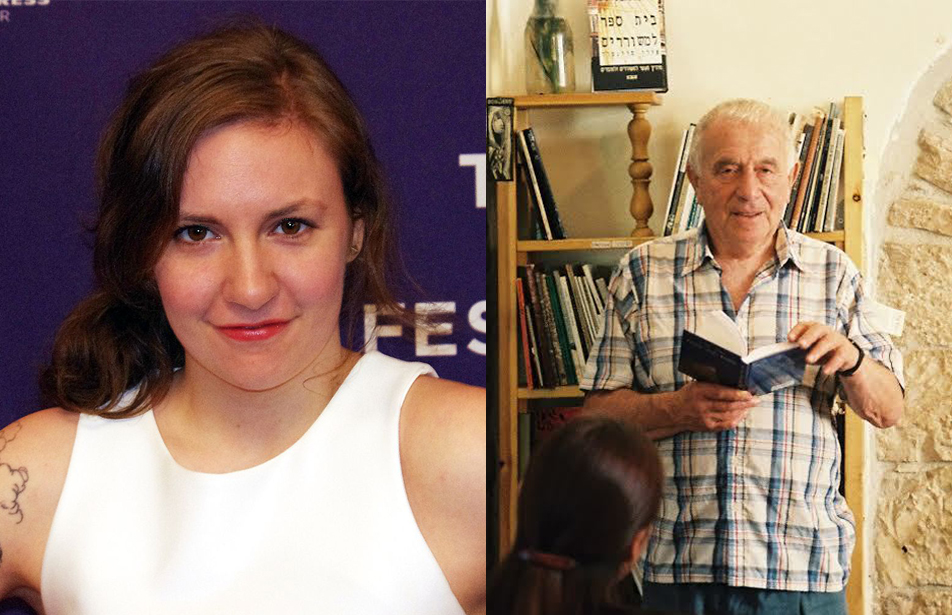“This past year a special person helped me connect to my Judaism in a new way, beyond bagels and sample sales and crushing guilt….” begins Lena Dunham’s moving instagram post from this weekend about the death of her grandmother and her discovery of the poetry of Yehuda Amichai. She shared an image of “People Use Each Other” (translated from the Hebrew).
For many of Lena’s followers, this is probably their first encounter with the famed Hebrew poet. Lucky for them (and you!), we are here to fill you in on the life and work of Yehuda Amichai.
Born Ludwig Pfeuffer in 1924 in Würzburg, Germany, he grew up in an Orthodox Jewish household and attended a bilingual school where he learned German and Hebrew. In 1935, when he was just 11, his family left Germany and moved to Palestine. Ludwig changed his name in 1946 to Yehuda Amichai: “my people lives.” As a young man, Amichai served in the Israeli War of Independence in 1948-1949 (he would serve in three other wars); his poems often evoke historical and Biblical history.
As the introduction to The Poetry of Yehuda Amichai explains:
Once, in the 1970s, at a reading in Berkely, a belligerent questioner wanted to know whether he had seen God on the battlefield. No, he answered quietly, he had seen only men dying, and it was the job of the poet to make these harsh realities plainly…
Amichai is an accessible poet; he deals with the modern politics of Israel and the realities of Jewish life. When Israeli Prime Minister Yitzhak Rabin accepted the Nobel Prize for Peace on December 10, 1994, he quoted Amichai’s “God takes pity on kindergartners” poem. Amichai writes about war, Jerusalem, Jewish holidays, his father, and everything in between.
One of his most famous poems is “Jerusalem, 1967”—the tale of the city of Jerusalem through history: “Jerusalem is a port city on the shore of eternity.” Part 10 of the poem reads (from the translated version by Stephen Mitchell in The Poetry of Yehuda Amichai, ed. Robert Alter:
10
Jerusalem is short and crouched among its hills,
unlike New York, for example.
Two thousand years ago she crouched
in the marvelous starting-line position.
All the other cities ran head, did long
laps in the arena of time, they won or lost,
and died. Jerusalem remained in the starting crouch;
all the victories are clenched inside her,
hidden inside her. All the defeats.
Her strength grows and her breathing is calm
for a race beyond the arena.
The whole poem—not just this one stanza that personifies Jerusalem as a female runner—is heartbreaking and beautiful.
So, take a page out of Lena Dunham’s book and start 5778 off by reading the wonderful work of Yehuda Amichai. Trust us, you won’t regret a thing.



